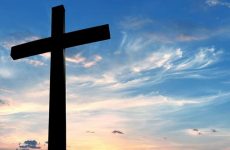
Last month, the US Senate confirmed America’s new ambassador to Lebanon, Dorothy Shea. She will need all the help she can get. Although the ambassador is well-respected for her regional expertise, she is dealing with a country on the verge of economic “implosion,” according to the World Bank, and one mired in formidable humanitarian and security challenges. Lebanon’s Christian community, the largest in the Middle East (excluding Egypt), is at risk.
She should have the help of a special envoy who can bolster and broaden her outreach.
Ambassador Shea takes up her post just as that small Mediterranean country is poised to hit rock bottom in a downward economic spiral brought on by entrenched governmental mismanagement. For years, the government has failed to meet international goals for reducing deficit spending. It even passed up generous aid by Cedre, a multilateral donors’ conference for Lebanon, rather than adopt reforms.
March 9 marks the first of several deadlines over the next quarter, when Beirut is obligated to repay billions of dollars in Eurobonds. A sovereign default, which seems likely, could result in the collapse of Lebanon’s banking system, wiping out depositors’ savings and bankrupting businesses and government services.
The United Nations’ top official in Lebanon warns that thousands of Lebanese could be driven out by economic despair. Many Christians are not waiting for the state to fail, according to Lebanese sources. The exodus has already begun.
All 18 of the country’s religious communities are feeling economic pain. Forty percent of the population is living in poverty, according to the government’s own statistics, and that number could soon reach 50 to 70 percent.
Lebanon’s hundreds of Christian charities are depleting their reserves to serve the needy, irrespective of religion. Hunger is now reported in all parts of Lebanon, as some are no longer able to provide the basic needs for their families. In some places, schoolchildren tell teachers, they haven’t eaten in days. Nationwide, there are critical shortages of medicine, and hospitals are curtailing treatments and have ended nonessential surgeries.
Meanwhile, unprecedented protests, drawn from all of Lebanon’s religious groups, have been going on for four months. While these protests are mostly peaceful, as unemployment increases, violence undoubtedly will too. As we write, there are media reports of protesters’ tents being targeted in drive-by shootings. There is a risk of complete chaos if the state fails.
Christians in the region have been leaving their native countries in strides. Will Lebanon’s faithful be the next ancient Church to face a mass exodus?
As original citizens of Lebanon, Christians play an essential role there. The late Pope St. John Paul II noted the unique conviviality between Christians and Muslims there. “Lebanon,” he said, “is more than a country; it is a message.” For example, Lebanon is the only Middle Eastern country where Christians fill high-level positions in government, including the presidency.
Over the last century, the country has been a haven for several Catholic and Orthodox patriarchs and untold numbers of persecuted Christians. Without a secure Christian presence in Lebanon, we fear, the region’s remnant Christian communities would lose heart and leave. A continuous, 2,000-year history of Christians in the region known as the Cradle of Christianity could end in this generation.
To help avert these looming catastrophes, the new ambassador will have to quickly address Lebanon’s fiscal crisis, before its damaged economy reaches the point of no return. She will need to take into account the US government’s continuing concerns about the influence in the government of Hezbollah, which has been designated a terrorist group by the US since 1997 and is barred from receiving US aid.
Other immediate challenges are presented by the political demands of the protesters, the dire need for humanitarian aid and the necessity of establishing a stable economic footing for Lebanon going forward. For all these reasons, we urge President Trump to appoint a special envoy to Lebanon to help Shea.
This envoy should be an American friend of Lebanon, empowered to report to the highest levels of the US government, work with countries of good will to support Lebanon and have strong personal connections to the Lebanese, including those within the diaspora.
The envoy’s urgent tasks should be to loosen the grip of any corrupt politician by identifying specific officials to target for Global Magnitsky Act and other personalized sanctions, help build a consensus among the reformists and recruit entrepreneurs and investors internationally who can help restore Lebanon as a sovereign and prosperous democracy.
To do less risks a massive humanitarian crisis, potential conflict and a defeat for Lebanon’s unique religious pluralism. It would jeopardize priority US security interests — and all that is most noble and good in Lebanon.
Most Rev. David J. Malloy, bishop of Rockford, is chairman of the International Justice and Peace Committee of the United States Conference of Catholic Bishops. Most Rev. Gregory Mansour is bishop of the Eparchy of Saint Maron of Brooklyn. Most Rev. Abdallah Elias Zaidan is bishop of the Eparchy of Our Lady of Lebanon of Los Angeles.


